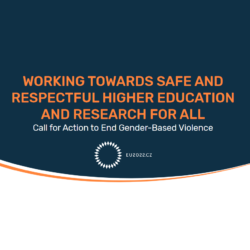Knowledge and skills needs of consortium members identified
To launch its capacity building activities, the GENDERACTIONplus consortium carried out a needs assessment survey aimed at assessing project partner’s knowledge and identifying priorities, preferences, and needs. The results will guide the development of the plan for the policy and RFO Communities of Practice (CoPs). The results show that in both the CoP, respondents have a good understanding of the institutional and policy context at regional and national level (institutional functioning, legal and policy context, relevant stakeholders) and of GEP design and implementation. Moreover, they have a fair level of soft skills (communication, negotiation, stakeholder engagement, participatory methods and techniques). Although slight differences can be observed between the two CoPs as well as between respondents with different levels of work experience in gender equality (1-5 years compared to more than 5 years), intersectionality and gender+ approaches and dealing with resistance stand out as points of common and high interest. The...







